Everyone seems to have advice for the Trump administration on Russia policy these days. Some recommend what is essentially a deal with Putin (arguing that Russia does not pose an immediate threat to the United States and can be a partner in some conflict areas), while others recommend a more hardline strategy (contending that Russia tried to undermine U.S. democracy and that the war in Ukraine is far from over).
It may take some time before the White House will be able to formulate its views. My advice? Hit pause, because acting now only plays into Putin’s hands.
Problems of Putin’s own making
Russia is in an early pre-election season itself, with Putin up for re-election (assuming he runs, which is a safe assumption) in March 2018. The outcome is easy to guess, and Putin and the Kremlin are approaching the vote as a personal referendum, of sorts. The Kremlin wants no fewer than 50 percent of all Russian voters to cast a ballot for Putin, which means regional authorities have been instructed to ensure a 70 percent turnout and, of those, 70 percent for Putin. Putin will likely run on a Trumpian campaign message—Make Russia Great Again!—but is unlikely to dramatically turn big policy wheels.
In this environment, either of the main U.S. options would benefit Putin. If Russia hawks in Washington win out, Putin will tell voters that he made Russia stronger and the United States only wants to undermine it. If Russia doves in Washington win out, he’ll claim to have brought the United States to its knees. In either case, Putin consolidates support.
What Washington must do instead is force Putin to face the real challenges that he himself created. While the Russian economy grew an average of 7 percent per year in the first eight years of Putin’s presidency, it is now in a sluggish mode, with very low growth during the last eight years. Growth perspectives are currently at around about 1 percent. In 2016, Russian GDP was only 2.7 percent larger than in 2008, and private consumption fell by 15 percent in the last two years.
The origins of the economic crisis are evident: Growth started to decline in 2013, when the price of oil was well above $100 per barrel (and no one was talking about sanctions). But poor rule of law protections drove poor property rights protections, which led to a decline in investments. Meanwhile, the Kremlin has done little to nothing to improve the situation. In contrast, Russian leaders made their economic situation worse by annexing Crimea three years ago, requiring a massive drainage of resources from the Russian economy. The decision to sponsor a military conflict in eastern Ukraine further added to the burden.
The judo approach
Putin’s favorite sport is judo, and he participates in international affairs much like a judo athlete.
It’s a very opportunistic sport, with a lot of time spent resisting and neutralizing the opponent using the most efficient methods possible, waiting for the right moment to strike. When Obama announced, but didn’t follow through on, his “red line” on Syria in 2013, for example, Putin took the opportunity to strengthen Russia’s positions in Syria and eventually joined the conflict outright. In 2014, sensing another moment, he grabbed Crimea. Putin is always looking for any gifts Washington might give him.
Another important fact about judo is that some competitions are open-weight, meaning competitors go head-to-head in spite of being different weights. Russia is in many ways smaller than the United States: its GDP and military budget—even in purchasing power parity terms—are only 20 percent of America’s. And yet, Russia regularly demands to be treated as an equal. In judo, this approach can be quite effective: rather than resist your opponent on the basis of strength (which will result in your defeat), adjust to your opponent and find ways to use his larger weight to tip his balance. That is Putin’s approach to the United States: he tries to destabilize his opponent in order to improve his leverage for the eventual deal-making phase.
Finally, judo is fundamentally a tactical sport. In his approach to international relations, Putin concentrates on a precise target and narrows his efforts accordingly, economizing his forces. He waits for moments when the small application of pressure or force can yield a big effect.
Patience is a virtue
Given that Putin has a number of troubles of his own making, and that his judo-esque strategy in world affairs relies heavily on patience, Washington should be patient: letting Putin act, but not reacting. That is the main winning strategy for the heavier-weight fighter in judo—not to run hotfoot for immediate victory, but rather to make the opponent to feel the discomfort of his situation and exhaust himself through strain. Rather than come out with statements and actions now, let Putin face his challenges and let the Russian people recognize the price of those challenges.
So, any near-term action or statement from Washington on Russia policy will benefit Putin. An offer from Trump to Putin resembling a deal will enhance the latter’s dominance in former Soviet space, while tough moves from the White House would help Putin mask his own problems (and he’d likely ramp up his hybrid warfare campaign, placing additional missiles in Kaliningrad or Crimea, or buzzing U.S. ships and planes). With Putin looking ahead to March 2018, maintaining his domestic popularity is at the forefront of his mind. And there is no better way to boost popularity before what is essentially a referendum than to demonstrate a “wag the dog”-style victory over the United States on Russian TV screens. Washington should refrain, in any way it can, from helping Putin. It should demonstrate to Russia—through its behavior, not by making explicit statements to this effect—that Russia is not a top foreign policy priority, and that Washington won’t give Putin the chance to win in an open-weight contest.
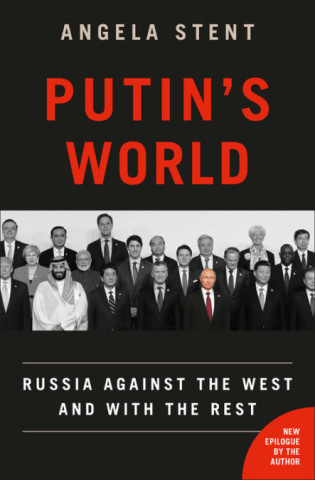

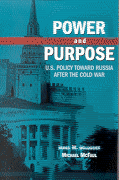
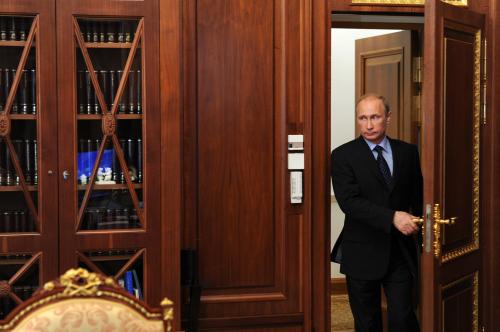
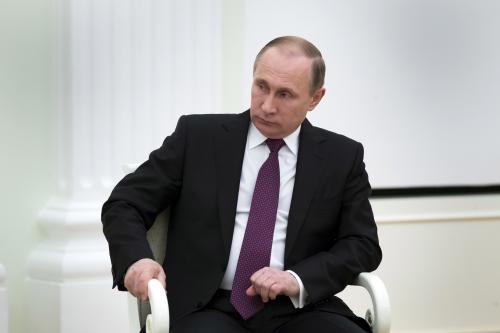
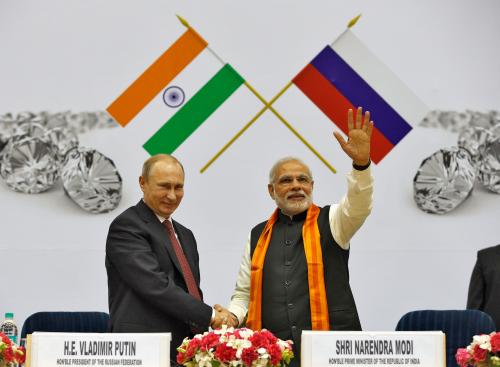



Commentary
On Russia, Washington should wait
March 7, 2017